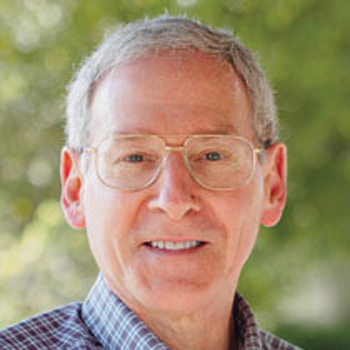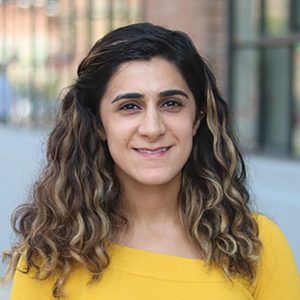Thorner stands as a giant in the golden age of yeast research
Saccharomyces cerevisiae is a species of yeast, a unicellular organism long used by bakers and brewers. As a eukaryotic single-cell microbe, yeast is also a great organism for research. Among the pioneers in studying yeast is Jeremy Thorner, who has increased understanding of signal transduction in several diseases, using yeast as a research model.

— Jeremy Thorner
For his breakthrough research and other contributions to science, Thorner, a professor of biochemistry, biophysics and structural biology at the University of California, Berkeley, has won the American Society for Biochemistry and Molecular Biology’s 2019 Herbert Tabor Research Award, which honors excellence in biological chemistry and molecular biology and contributions to the community of scientists.
Thorner grew up in Quincy, Massachusetts. He received his Ph.D. in biochemistry from Harvard University in 1972 under the guidance of Henry Paulus, studying a model allosteric enzyme, E. coli glycerol kinase. As a postdoctoral fellow under I. Robert Lehman at Stanford University, he studied T4 phage and E. coli DNA replication.
At a Lake Arrowhead Genetics Conference in Los Angeles, Thorner ran into Ira Herskowitz, an acquaintance from graduate school, who was studying mating-type switching in yeast. At Herskowitz’s suggestion, Thorner enrolled in the Cold Spring Harbor yeast genetics course, which led him to establish projects working with yeast in his own lab when he joined the faculty at UC Berkeley in 1974.
Along with an early student, David Julius, Thorner published seminal papers describing the mechanisms by which the peptide mating pheromones of yeast are produced. One of these factors is pheromone precursor prepro-alpha-factor, which is processed to its active form through the secretory pathway. Julius and Thorner discovered Kex2, a prohormone-processing endoprotease whose mammalian orthologs are important in maturation of proinsulin and other bioactive peptides. These discoveries contributed to making recombinant insulin for treating diabetes.
Using yeast, Thorner studied G-protein coupled receptors, or GPCRs, and their downstream signaling cascades. He cloned the first MAP kinase, Kss1, and showed that these kinases are downstream of GPCRs. This work helped illuminate certain pathways that are important in cancer treatment.
Michael Hall of the University of Basel nominated Thorner for the award, calling him “one of the giants of the golden age of yeast research.” Hall wrote in his nomination letter that Thorner “has continually made groundbreaking contributions of great importance to our understanding of hormone action, signal transduction and cellular morphogenesis at the biochemical level.”
Thorner is an outstanding mentor, according to Hall, “with at least seven former Ph.D. students and fifteen postdocs in faculty positions at distinguished universities.” He is also a longtime journal editor who “tirelessly writes lengthy emails to authors to ensure a fair, constructive review process,” Hall wrote.
Enjoy reading ASBMB Today?
Become a member to receive the print edition four times a year and the digital edition monthly.
Learn moreGet the latest from ASBMB Today
Enter your email address, and we’ll send you a weekly email with recent articles, interviews and more.
Latest in People
People highlights or most popular articles

Finding a symphony among complex molecules
MOSAIC scholar Stanna Dorn uses total synthesis to recreate rare bacterial natural products with potential therapeutic applications.

Sketching, scribbling and scicomm
Graduate student Ari Paiz describes how her love of science and art blend to make her an effective science communicator.

Embrace your neurodivergence and flourish in college
This guide offers practical advice on setting yourself up for success — learn how to leverage campus resources, work with professors and embrace your strengths.

Survival tools for a neurodivergent brain in academia
Working in academia is hard, and being neurodivergent makes it harder. Here are a few tools that may help, from a Ph.D. student with ADHD.

Quieting the static: Building inclusive STEM classrooms
Christin Monroe, an assistant professor of chemistry at Landmark College, offers practical tips to help educators make their classrooms more accessible to neurodivergent scientists.

Hidden strengths of an autistic scientist
Navigating the world of scientific research as an autistic scientist comes with unique challenges —microaggressions, communication hurdles and the constant pressure to conform to social norms, postbaccalaureate student Taylor Stolberg writes.

